Conferences

2025 Conference – Innovative Pathways in Child Welfare Practice
Oct 3, 2025 – Oct 3, 2025
The Child Maltreatment Solutions Network hosted a 1-day in-person conference on the top floor of the Eric J Barron Innovation in State College, PA, a block from the University Park, Penn State Campus on Friday, October. This was held in person with a Zoom option for those who are unable to be in State College, PA and need to attend remotely.
Registration is closed. A tiered conference fee was minimal to highlight the Network's desire to equip those working in Child Advocacy, learning and research related to this topic:
- General Registration - $45.00
- MDT (Multidisciplinary Team members) - $25.00
(please contact us for complimentary registration if your agency is unable to cover this fee) - Students - free
Nationally renowned presenters shared information on best practices in child welfare, with a focus on:
- Quality Forensic Investigations – Enhancing access to interviews and medical evaluations
- Caring for Children and Families – Improving systems of care for children and families to improve recovery
Breakfast, lunch and refreshments were provided throughout the day.
A Networking Reception closed the event.
Conference questions? Reach out to solutionsnetwork@psu.edu

2025 Prevention Awareness Webinar – Understanding and Preventing Child Maltreatment Fatalities
Apr 25, 2025 – Apr 25, 2025
A half-day event that explored the risks that might be present within a child welfare investigation, providing intervention solutions for agencies and professionals to address and prevent child maltreatment fatalities.

2024 Conference – Biological Embedding of Caregiving Adversity
Nov 15, 2024 – Nov 15, 2024
The Child Maltreatment Solutions Network hosted a 1-day in-person conference in 129 HUB (HUB-Robeson Center) on the University Park, Penn State Campus on Friday, November 15!
Internationally renowned speakers presented their research related to the Biological Embedding of Caregiving Adversity to a diverse audience, including researchers, practitioners, and caseworkers, to facilitate the fastest uptake of these innovative methods.
A poster session ran in parallel with a Networking Reception at the end of the afternoon.
Breakfast, lunch refreshments, were provided.
Conference questions? Reach out to solutionsnetwork@psu.edu
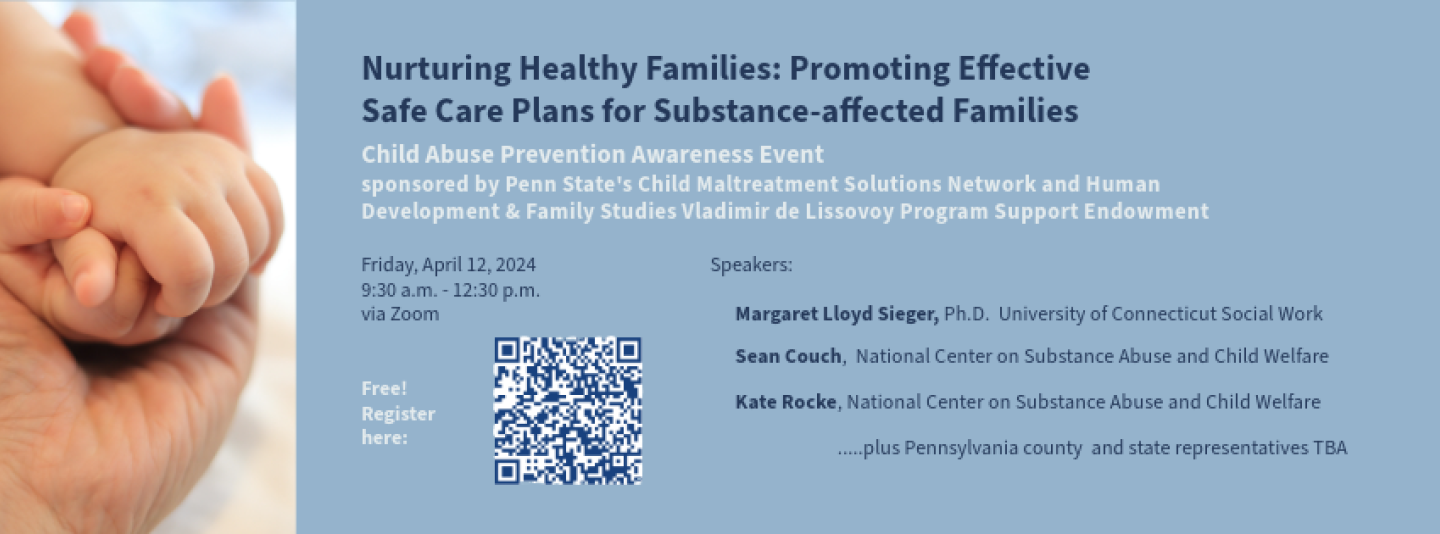
Child Abuse Prevention Awareness WEBINAR - Nurturing Healthy Families: Promoting Effective Safe Care Plans for Substance-Affected Families – Nurturing Healthy Families: Promoting Effective Safe Care Plans for Substance-Affected Families
Apr 12, 2024 – Apr 12, 2024
Webinar Recordings and Resources
A Plan of Safe Care serves as a guiding document that directs services and supports to ensure the safety and well-being of substance-affected infants and their caregivers. This event will equip professionals across child welfare, healthcare, behavioral health, and early intervention sectors with valuable insights into the research findings and practical challenges inherent in implementing Plans of Safe Care. Presentations will offer a deeper understanding of state approaches and opportunities for innovation, highlighting the critical intersection of child welfare, healthcare, and public health in protecting vulnerable populations. Given the significant number of young children entering foster care due to parental substance misuse, the event will address the pivotal role of Plans of Safe Care in prevention and intervention efforts.
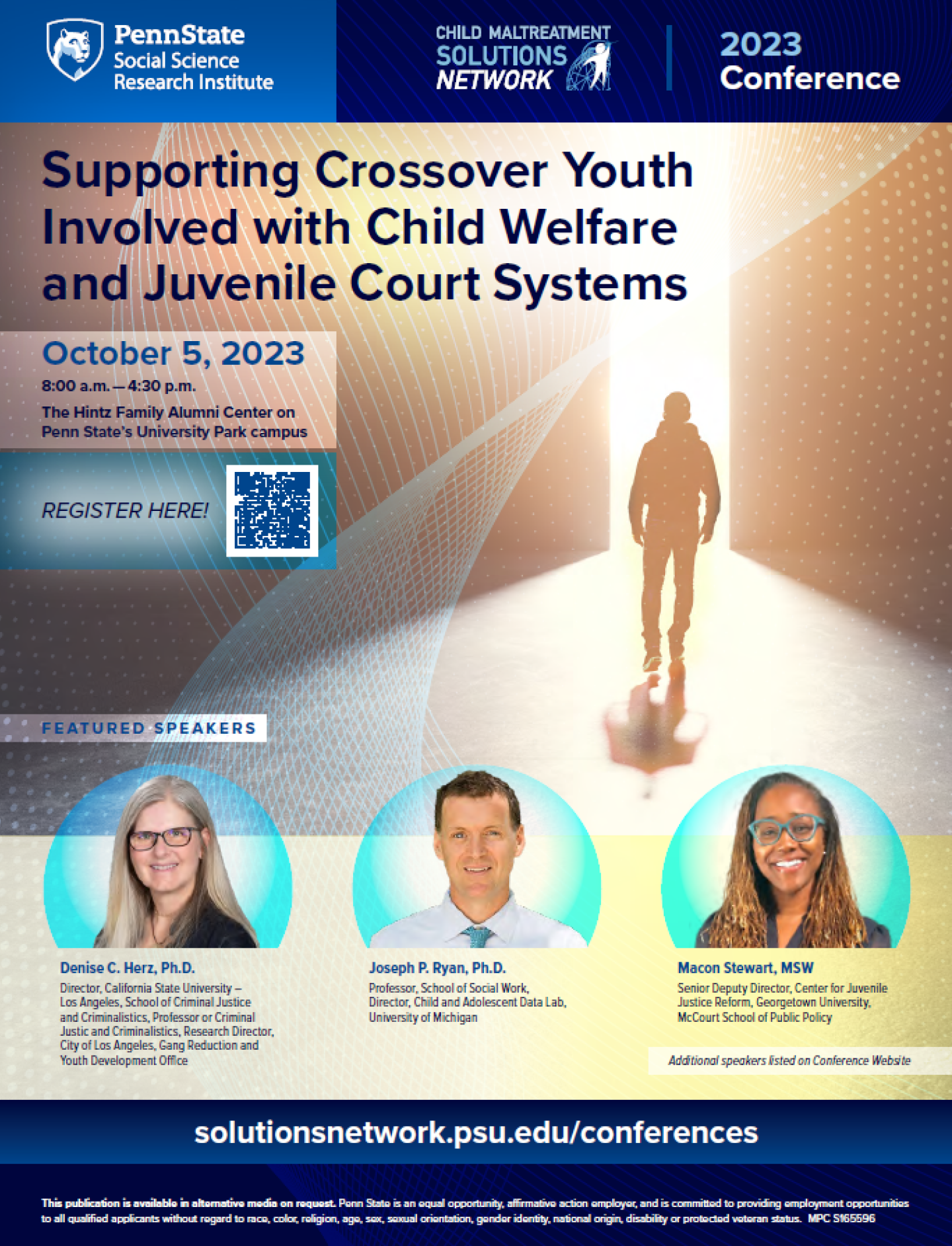
2023 Conference – Supporting Crossover Youth Involved with Child Welfare and Juvenile Court Systems
Oct 5, 2023 – Oct 5, 2023
The Child Maltreatment Solutions Network is hosting a 1-day in-person conference at The Hintz Family Alumni Center on the University Park, Penn State Campus on Thursday, October 5!
Nationally renowned speakers will share research and discuss policy response for "Crossover Youth," offering strategies and solutions to support youth at the intersection of child welfare and juvenile justice systems.
Presentations will be geared toward a diverse audience, including researchers, practitioners, and caseworkers, to facilitate the fastest uptake of these innovative methods. Breakfast, lunch refreshments, will be provided.
A virtual attendance option is available for those who are unable to attend the conference in-person.
Conference questions? Reach out to solutionsnetwork@psu.edu
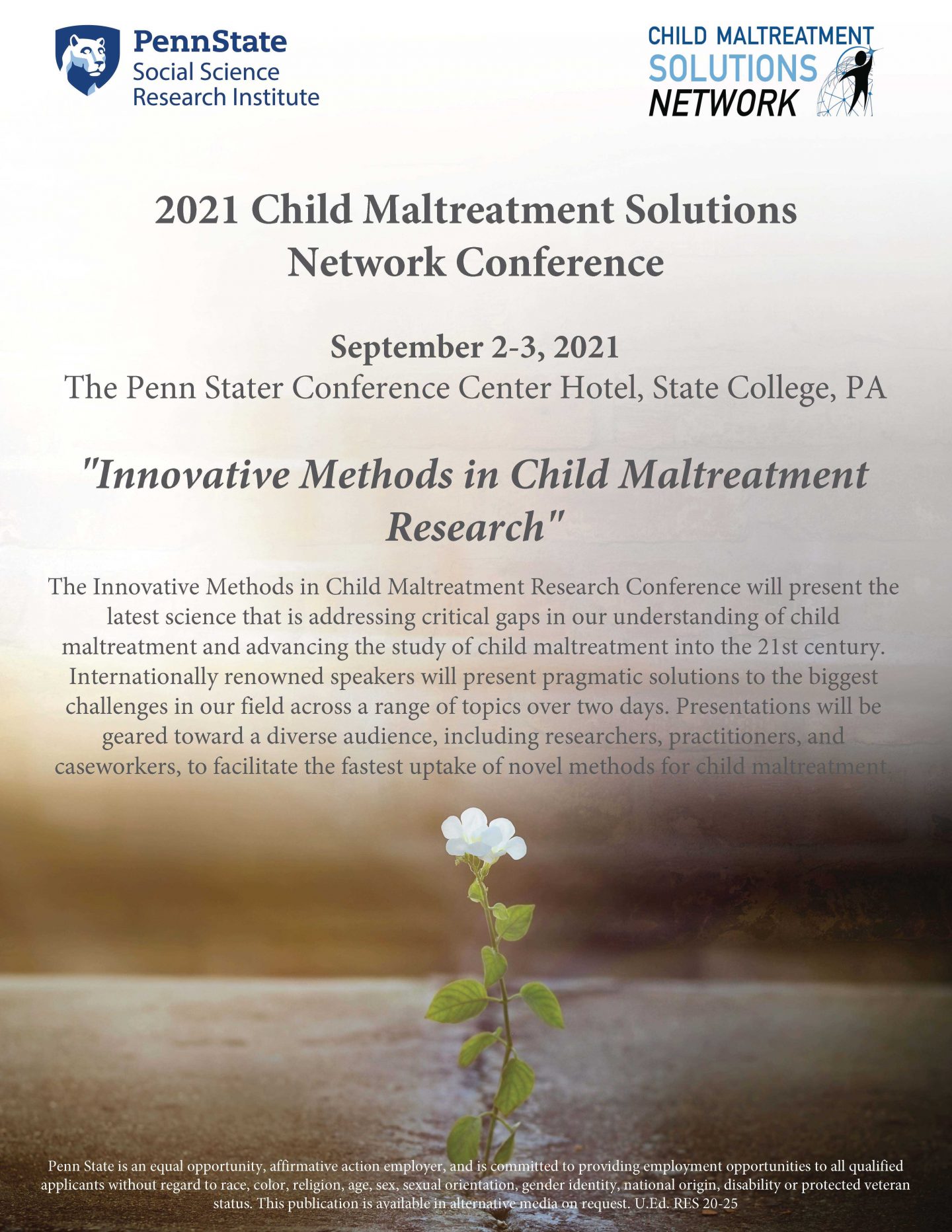
2021 Conference – Innovative Methods in Child Maltreatment Research
Sep 2, 2021 – Sep 3, 2021
The Innovative Methods in Child Maltreatment Research conference will be offered in-person for 2021! Internationally renowned speakers will present pragmatic solutions to the biggest challenges in our field by reviewing the latest in innovative methods for child maltreatment over two full days at the Penn Stater Conference Center Hotel. Presentations will be geared toward a diverse audience, including researchers, practitioners, and caseworkers, to facilitate the fastest uptake of these innovative methods. Continuing Education Units (CEUs), as well as food and refreshments, will be available to those attending in-person. A virtual attendance option will also be provided for those who are unable or unwilling to attend the conference in-person.
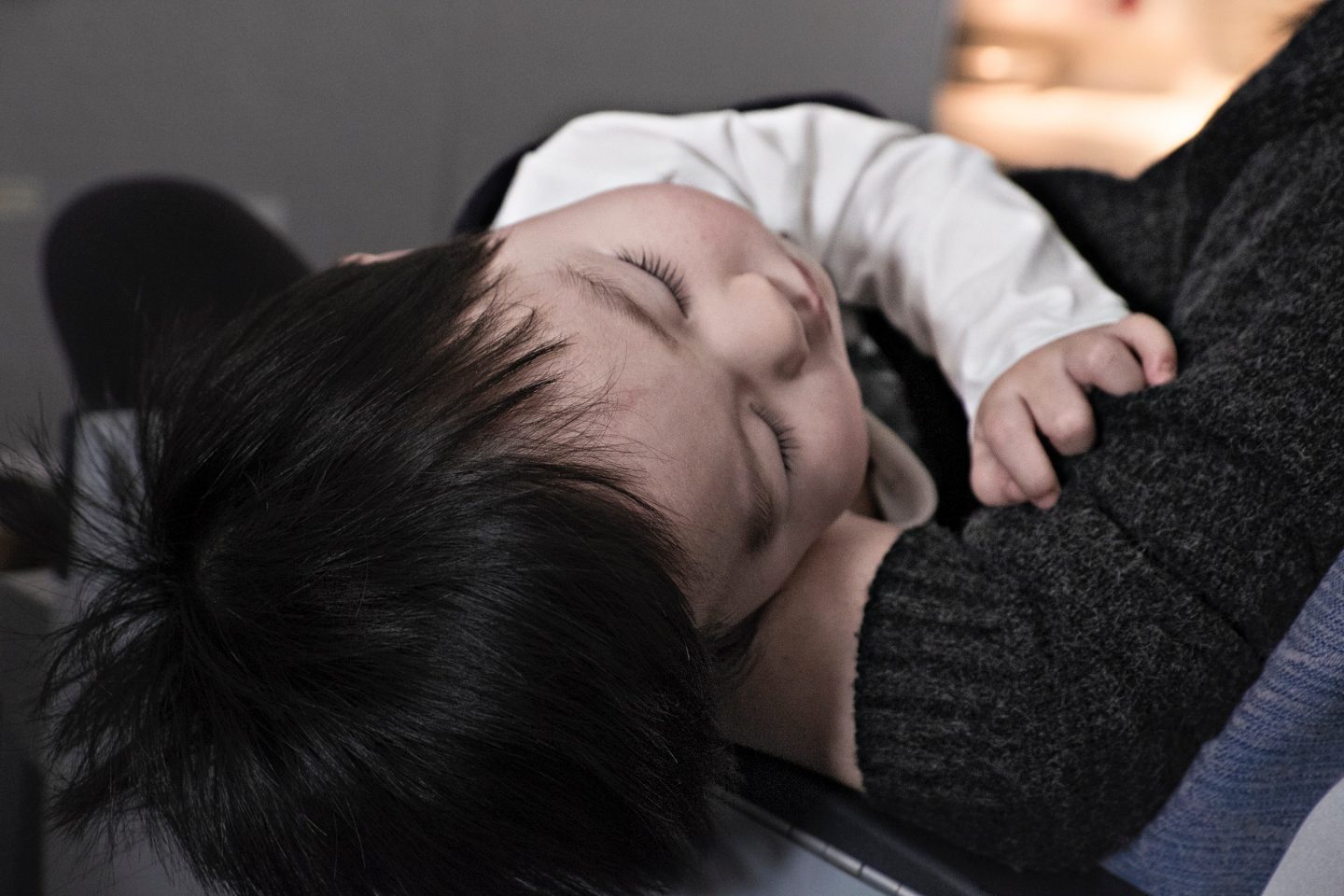
2019 Conference – The Future of Foster Care: New Science to Address Old Problems
Sep 23, 2019 – Sep 24, 2019
The Future of Foster Care conference will focus on identifying and addressing the barriers to meaningful change and innovative policy and practice solutions to the foster care system’s most pressing challenges. Leaders from government, academia, and the non-profit sector will meet for a two day event during which speakers will elucidate key challenges and detail solutions that are currently being tested in real-world settings.

2018 Conference – Strengthening Child Safety and Wellbeing through Integrated Data Solutions
Sep 27, 2018 – Sep 28, 2018
Over the past decade, the landscape for using data to inform child welfare system efforts has seen tremendous growth. Technological innovations have allowed for the accumulation and centralization of large datasets critical to identifying risks of child maltreatment and its negative consequences and to better target community and system response to these challenges. How can these data be leveraged to promote more effectives efforts to detect, prevent, and respond to child maltreatment? The purpose of this conference is to showcase emerging and innovative approaches in the acquisition and use of administrative data to inform the societal and governmental response to child maltreatment. This conference will highlight the use of multi-system data (or Integrative Data Systems) to conduct predictive analytics, risk monitoring, or policy and program-focused research and evaluation to inform child welfare system solutions.

2017 Conference – Scientific synergy and innovation from Military Family and Child Welfare Contexts
Sep 27, 2017 – Sep 28, 2017
An often under-recognized aspect of the United State Military is its leadership efforts to enhance child and family well-being. Indeed, the military supports a large portfolio of programs and practices to enhance overall family health and resilience. For instance, the military’s child development centers have been widely regarded as some of the highest quality centers in the world. In addition, the military has a large system of family advocacy efforts, including family support, new parent education, resiliency and readiness, and sexual assault prevention.
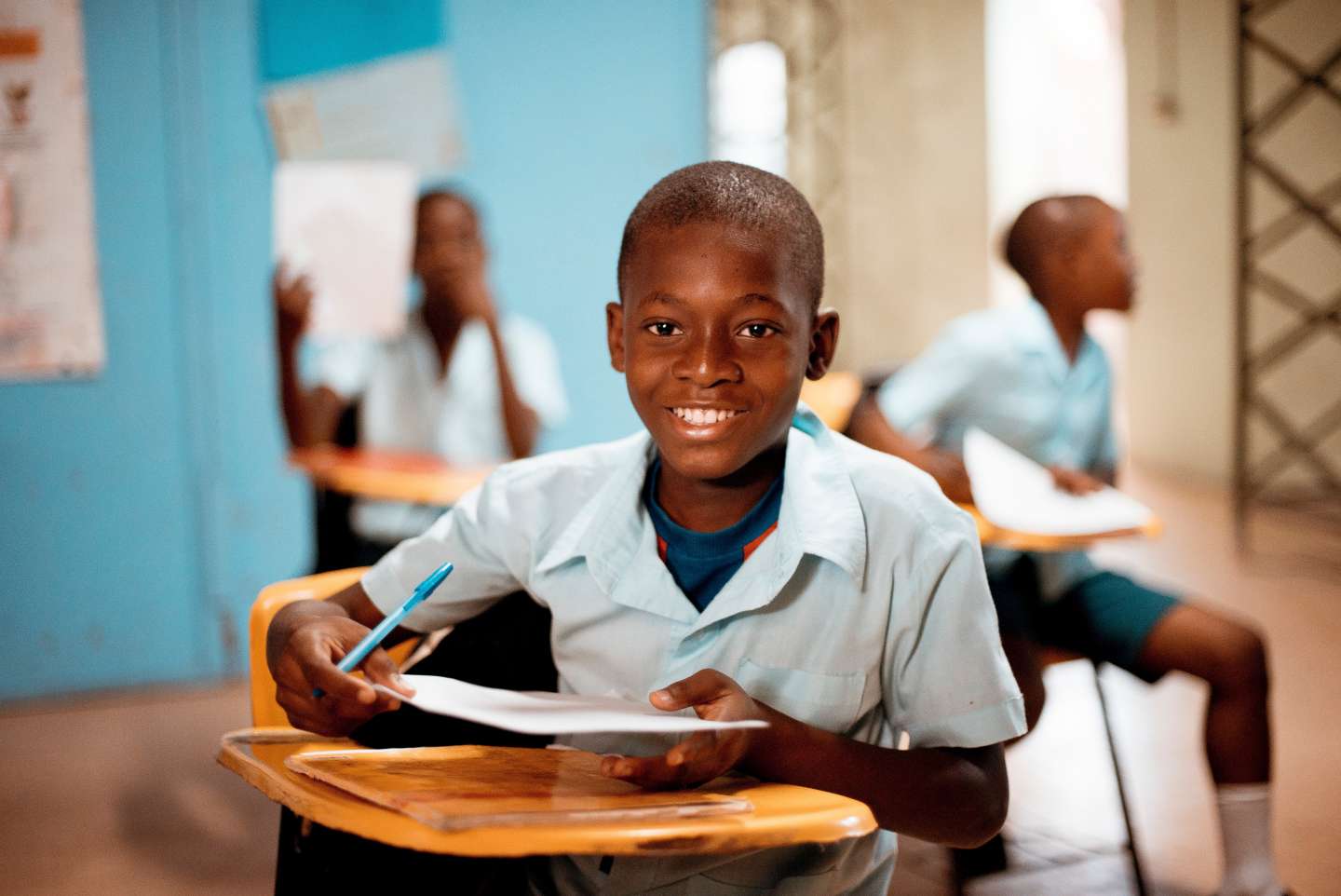
2016 Conference – Trauma Informed Schools: How child maltreatment prevention, detection, and intervention can be integrated into the school-setting
Oct 10, 2016 – Oct 11, 2016
More than ever before, schools and teachers are called upon to identify and respond to the unique challenges of childhood trauma. The National Child Traumatic Stress Network (NCTSN) estimates that one out of every four students in U.S. schools has been exposed to a traumatic event that can affect learning and/or behavior. In particular, children who experience the trauma of maltreatment often have difficulties inside and outside of the classroom. These challenges can negatively affect educational well-being and often persist over the long-term, creating unnecessary barriers to learning and independence.